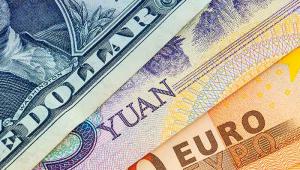web_kemi_imf_24108887971_2f40ddeed0_o.jpg

Speaking at the event, minister of finance Kemi Adeosun said the government was working to ensure better tax collection in Nigeria. Credit: IMF staff photo/Stephen Jaffe
The country currently only collects 7% of its GDP in tax, compared to the 20% average for emerging market economies. The government’s major source of revenue had been oil, but the collapse in prices has drained coffers underscoring the need to end the country’s reliance on the commodity.
Speaking at a conference hosted by the Chartered Institute of Taxation of Nigeria, the institute’s president, Olateju Somorin, stressed the tax gap must be filled if the country is to make development progress in the face of a lack of infrastructure nationwide.
According to Nigeria’s The Guardian, she said: “A review of some tax laws has become overdue. Sustainable economic growth cannot be attained… without the review of the obsolete laws and tax rates in consonance with macroeconomic objectives and efficient tax administration machinery.
“Our tax system must be well structured, such that the framework of tax exemptions, tax incentives and waivers are streamlined.”
A former president of the institute, Anthony Chidolue Dike, added the economy should be weaned off oil taxes with a gradual shift to indirect taxes in non-oil sectors. This would bring Nigeria’s large informal economy into the tax base, he said.
Along with Muda Yusuf, director-general of the Lagos Chamber of Commerce, he added that corporate tax and the heavy burden of other taxes and levies on businesses should be reduced.
Other commentators called for an increase in VAT. Nigeria’s sales tax rate is currently 5%, compared to 14% in South Africa, 15% in Namibia, 17% in Mozambique and 18% in Rwanda.
In its latest health check of the Nigerian economy, the International Monetary Fund also recommended raising VAT to 7.5%, broadening the tax base and strengthening tax administration in order to fill the gap left by oil.
The registrar and chief executive at the Institute of Chartered Accountants of Nigeria, Rotimi Omotoso, also commented that access to electronic tax returns are needed for all Nigerians, as the safest, fastest and easiest way to pay.
Also present at the conference was finance minister, Kemi Adeouson, who conceded that Nigeria’s tax revenue is too low, and said it is a key factor in the country’s financial difficulty and a symptom of the country’s over reliance on oil revenue.
Speaking on behalf of president Muhammadu Buhari, she said Nigeria would pursue a new tax governance, ending the practice carried out by some government contractors of shirking taxes by withholding payment.
She continued to say the government will embark on technology-driven tax reforms to widen the tax base and improve efficiency in revenue collection.













